The humanitarian and military crisis in Afghanistan continues to erupt after the Taliban’s swift takeover of authority when the U.S. government began withdrawing troops earlier this month. In keeping with its mission to elevate facts and reasoned discourse, the Vanderbilt Project on Unity & American Democracy promptly brought together military and political experts, including Lt. Gen. Scott Howell, a former commander of the Joint Special Operations Command in Afghanistan, for a live virtual discussion on Aug. 26.
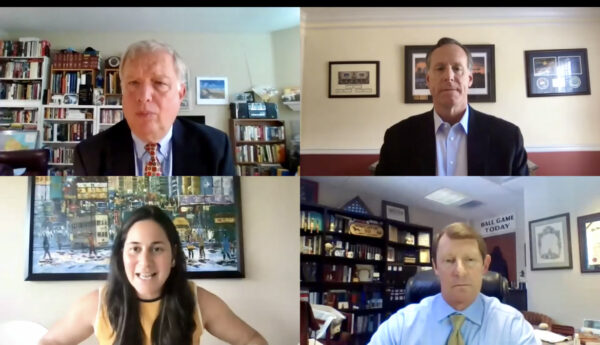
During the 20 years the U.S. military has been in the war-torn country, almost 2,500 American personnel have died in the conflict, and $2 trillion dollars have been spent.
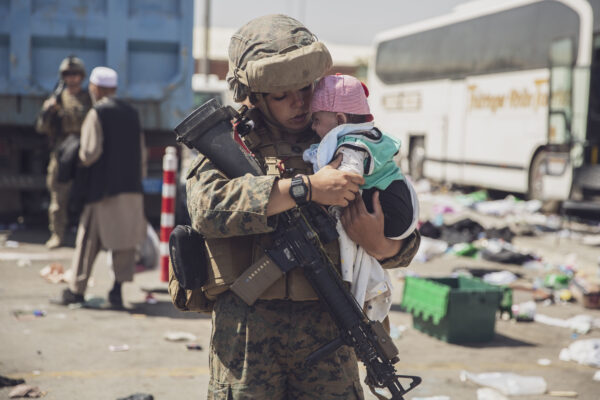
BIPARTISAN AGREEMENT
Lt. Gen. Howell said even though people disagree on the tactics around the military pullout, there was bipartisan agreement to leave Afghanistan. But politics led to some devastating mistakes.
“In effect, President Trump and President Biden agreed that we should get out of Afghanistan,” Howell said. “I think domestic politics, however, led to a complete disaster because the attempt to do something political, namely marking the withdrawal to Sept. 11 as a symbolic end of America’s endless wars, avoided taking into consideration both military and intelligence analysis that would have steered us in a different direction.”
BAGRAM BACKFIRE
Some of the panelists said that American troops should never have left Bagram Airfield back in July. The airbase held all the military and surveillance architecture needed to conduct military operations and secure the embassy. Soon after that, the Taliban began a campaign to retake Afghanistan province by province.
Tom Schwartz, Distinguished Professor of History and professor of political science and European studies, said unlike during the Vietnam War when there was heavy pressure to pull troops out, President Biden did not have that overwhelming public opposition.
“In this case, they could have retained a small force to keep certain areas secured. It would’ve provided a morale boost for the Afghan army and a chance to continue at least a type of stalemate with the Taliban,” Schwartz said. “The sacrifice of that stalemate was a critical mistake.”
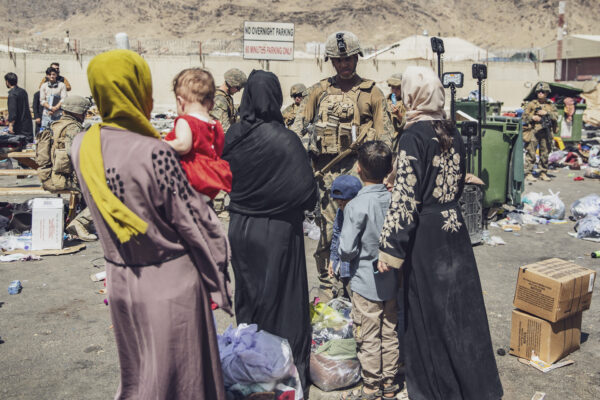
AFGHAN ALLIES
Howell and Vanderbilt Professor of the Practice of Law Michael Newton, an authority on the law of armed conflict and war crimes issues and an adviser to United Nations agencies, stressed the need to help the Afghan people who have partnered with the military for years.
“I see the faces of the men and women with whom we worked, who counted on our trust and trusted us with their lives and with their families and we have abandoned them,” said Newton, who had a distinguished military career including with the 7th Special Forces Group.
He said the U.S. should’ve followed established evacuation procedures like those used in Bosnia.
“We have doctrine on how to do noncombatant evacuation operations. We’ve successfully done humanitarian corridors and safe havens for people, all of which requires a pretty carefully calibrated military, political and diplomatic response,” Newton said.
SPECIAL IMMIGRANT VISA
Newton said one of the first ways to help Afghan allies must be improving the lengthy and complicated application process around the Special Immigrant Visa program, created after the Iraq War to help U.S. allies who worked with the military.
Howell added that as thousands of Afghan refugees come into the U.S., the American people need to step up to support them with aid, English language support and other accommodations.
AMERICAN-STYLE MILITARY DOESN’T ALWAYS WORK
The experts agreed that it is difficult to create an American-style military for Afghanistan when its citizens have stronger tribal and ethnic ties than an overall national allegiance.
“We’ve been building a local army there that is arguably functional, but wasn’t functional for the Afghan people,” said panelist Samar Ali, Vanderbilt research professor of political science and law, Muslim-American expert in international conflict resolution, and co-chair of the Vanderbilt Project on Unity & American Democracy.
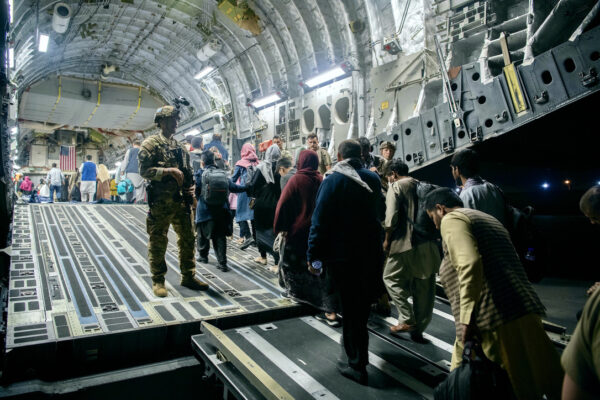
CRISIS IN DIPLOMACY
Ali blamed a longstanding lack of personal connection with the Afghan people and decades long communication problems within U.S. agencies for toppling what she calls a “house of cards.”
“We did not really build diplomatic relationships that were effective on the ground at that grassroots level with consistency. I also think that the State Department coordination with Department of Defense, along with the CIA and the various White House administrations was dysfunctional at best,” Ali said.
FUTURE OF AFGHANISTAN
One of the biggest questions looming in the coming days and weeks is whether nations around the world will acknowledge the Taliban, which has a history of severe military and humanitarian abuses, as a legitimate government or still consider them an official terrorist organization. This will play a role in which governments and organizations offer financial and other aid to the country.
“How they secure loyalty to create a functioning economy is to me one of the huge problems that they face right now,” Newton said. “They do not have the money to run any kind of government, and it’s hard to see where they will get it.”
Ali added, “What we don’t want is to choke every Afghan person who’s living there, who really needs international help and supplies and relief. So we need to think strategically.”
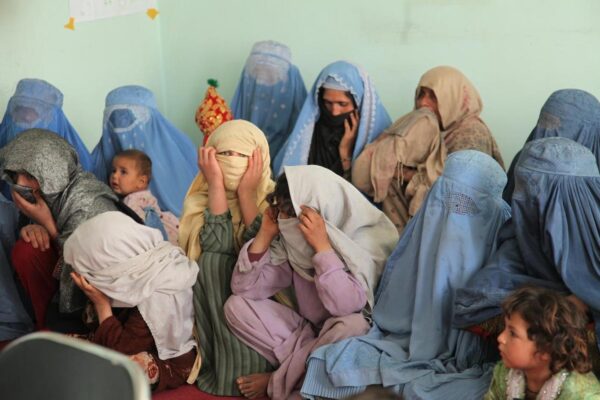
CAREFUL OPTIMISM
Over the last two decades there have been some dramatic changes in Afghanistan, including better education for girls, a rise in the use of technology, and partnerships with the U.S. and other countries, bringing in communication and knowledge from around the world. But the panel said this is where diplomacy is essential to deter the Taliban from destroying these advances.
“The Taliban are now saying they want to hold on to some of the people who are educated, engineers and the rest, to contribute to the reconstruction. But this will be a genuine test of whether the Taliban has any room for a different group of Afghans who might want more education and rights for women as well,” Schwartz said.
WAYS TO HELP
The panelists all agree that when the Afghan crisis slips from the headlines, interest in helping the Afghan people may also slip when they need it the most. They encouraged people to communicate with their representatives in Washington, D.C., and reach out to organizations helping the Afghan people.
“The most effective thing we can do to help right now as individual citizens is to show people what America really looks like. We need to help them find food, shelter, housing, help people get licenses, help people learn English,” Newton said. “We also need to stand united with our allies and stand firm in the face of fear and terrorism and injustice. That’s what America is for.”
Each of the panelists offered suggestions on some specific ways people can aid incoming Afghan refugees, as well as veterans and their families:
- Donate or volunteer with No One Left Behind and Lutheran Immigration and Refugee Service to continue their work with special immigrant visas, providing support as Afghan refugees enter the country.
- Donate to the Tragedy Assistance Program for Survivors to bolster its National Military Survivor Helpline.
- Donate to help Afghan children and families facing hunger through the International Rescue Committee, currently raising $10 million in lifesaving aid in Afghanistan.
- To provide support for Afghan women and girls, donate to Vital Voices or Women to Women International.
- Support the International Committee of the Red Cross, ensuring humanitarian protection and assistance for victims of war and violence.
- Support Doctors Without Borders as they continue to provide critical medical care across five provinces in Afghanistan.
- DOCTORS: provide medical relief at a free clinic servicing the influx of people coming in from Afghanistan daily.
- Contact your representatives in the U.S. Congress to let them know you care about this issue.
- LAWYERS: Provide pro bono advice through Human Rights First.
SUGGESTED READINGS FROM THE PANEL
- Games Without Rules—The Often Interrupted History of Afghanistan by Tamim Ansary
- The Afghanistan Papers: A Secret History of the War by Craig Whitlock and The Washington Post, available Aug. 31.
- Directorate S: The CIA and America’s Secret Wars in Afghanistan and Pakistan by Steve Coll
- The American War in Afghanistan by Carter Malkasian
- Henry Kissinger and American Power: A Political Biography by Thomas A. Schwartz
- Afghanistan: A Culture & Political History by Thomas Barfield
- The Fighters by C.J. Chivers
- Special Inspector General for Afghanistan Reconstruction
- Lessons Encountered: Learning from the Long War by Richard D. Hooker Jr., and Joseph J. Collins, available for free download (PDF)
Watch this and other panel discussions sponsored by the Vanderbilt Project on Unity and American Democracy.